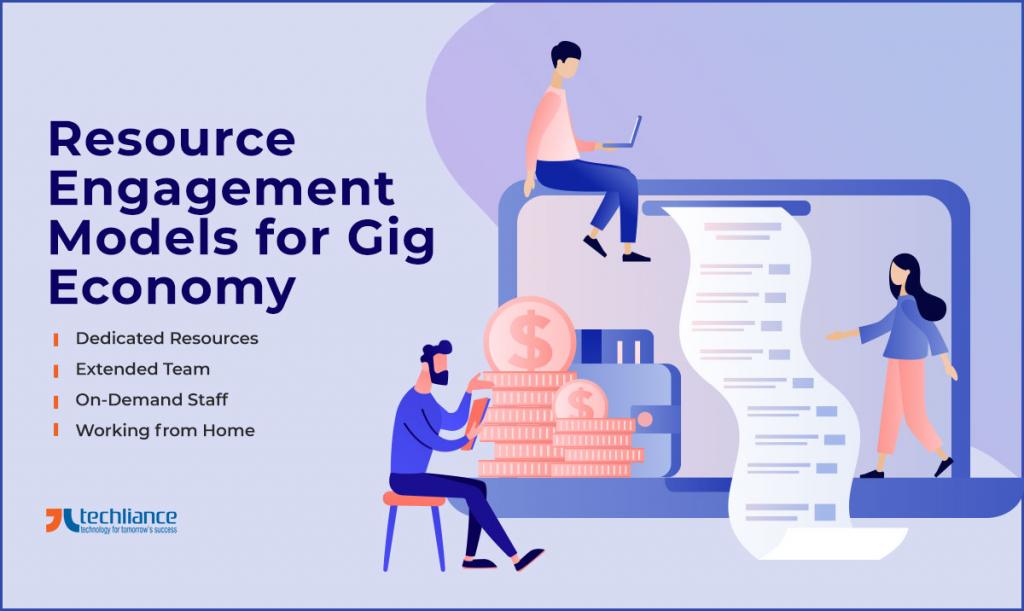
Gig Economy
The gig economy, a modern employment phenomenon, has transformed the way people work, bringing both opportunities and challenges. In this article, we delve into the various aspects of the gig economy, exploring its pros and cons for workers and employers alike.
Definition of the Gig Economy
The gig economy refers to a labor market characterized by short-term, flexible jobs. Workers in the gig economy are often independent contractors, freelancers, or part-time workers, offering their services on a project-by-project basis.
Significance in Today’s Workforce
As traditional employment models evolve, the gig economy has gained prominence. It provides an alternative to the conventional 9-to-5 job, offering a more flexible and dynamic approach to work.
The Pros of the Gig Economy
Flexibility in Work Schedule
One of the primary advantages of the gigg economy is the flexibility it offers to workers. They have the freedom to choose when and where they work, allowing for a better work-life balance.
Diverse Job Opportunities
The gig economy opens doors to a wide range of job opportunities. From creative roles to technical tasks, individuals can explore diverse fields based on their skills and interests.
Entrepreneurial Opportunities
Gig work allows individuals to operate as entrepreneurs. They can build their own brand, set their rates, and manage their business independently, fostering a sense of entrepreneurship.
Increased Autonomy for Workers
Gig workers have greater autonomy over their work. They can select projects aligned with their skills and values, leading to increased job satisfaction and motivation.
The Cons of the Gig Economy
Lack of Job Security
While gig work offers flexibility, it often lacks the stability of traditional employment. Workers may face periods of unemployment between gigs, leading to financial uncertainty.
Limited Access to Benefits
Gig workers commonly lack access to employee benefits such as health insurance, retirement plans, and paid leave, which are standard in traditional jobs.
Income Variability
Earnings in the gig ecconomy can be unpredictable. Gig workers may experience fluctuations in income, making it challenging to budget and plan for the future.
Potential for Exploitation
Some gig workers face challenges such as low pay and unfair working conditions. The absence of labor protections in the gig economy can leave workers vulnerable to exploitation.
Impact on Employers
Cost Savings
Employers benefit from cost savings in the gig ecconomy. They can hire workers on a project basis, reducing fixed labor costs associated with traditional full-time employees.
Access to a Global Talent Pool
The gig economy enables employers to access a diverse and global talent pool. This can lead to increased innovation and a broader range of skills within the workforce.
Adaptability to Market Changes
Employers in the gig economy can quickly adapt to market changes. They can scale their workforce up or down based on demand, staying agile in a dynamic business environment.
The Future of the Gig Economy
Emerging Trends
The gig ecconomy continues to evolve with emerging trends such as the rise of remote work, the gigification of traditional roles, and the integration of technology.
Technology’s Role
Advancements in technology, including digital platforms and artificial intelligence, play a pivotal role in shaping the gig economy. They connect workers with opportunities and streamline the gig work process.
Regulatory Challenges
As the gig ecconomy grows, regulators face challenges in developing policies that protect workers while supporting the flexible nature of gig work. Striking the right balance is crucial for the sustainable development of this employment model.
Balancing Act: Navigating the Pros and Cons
Strategies for Gig Workers
Gig workers can navigate the challenges by adopting strategies such as financial planning, skill development, and leveraging online platforms to secure consistent opportunities.
Responsibilities of Employers
Employers must ensure fair treatment of gig workers, offering competitive pay, clear contracts, and access to essential benefits. Building a positive employer-employee relationship is key.
Government Initiatives
Governments play a vital role in creating a supportive environment for gig workers. Developing and updating labor laws that address the unique needs of gig workers is crucial for their well-being.
Case Studies
Success Stories
Exploring success stories of individuals thriving in the gig economy provides insights into strategies for success and the potential rewards of this flexible work model.
Cautionary Tales
Examining cautionary tales highlights the risks and challenges associated with the gig ecconomy, offering valuable lessons for both workers and employers.
The Human Aspect
Mental Health Implications
The gig economy’s impact on mental health is a growing concern. The lack of job security and the pressure to constantly secure new gigs can contribute to stress and anxiety.
Building a Supportive Gig Community
Creating a supportive community for gig workers can mitigate the negative effects on mental health. Networking, sharing experiences, and seeking advice from peers can foster a sense of belonging.
Summarizing the Pros and Cons
the gig economy presents both opportunities and challenges for workers and employers. While it offers flexibility and diverse job opportunities, it also comes with uncertainties such as income variability and limited access to benefits.
Looking Ahead to the Gig Economy’s Evolution
As the gig economy continues to evolve, it is essential for stakeholders, including workers, employers, and regulators, to collaborate in shaping its future. Balancing the interests of all parties will contribute to the sustainable growth of this dynamic employment model.
What industries are most affected by the gig economy?
The gig economy has a significant impact on industries such as transportation, technology, creative services, and healthcare.
How can gig workers secure financial stability?
Gig workers can enhance financial stability by budgeting effectively, diversifying their skills, and establishing a financial safety net for periods between gigs.
Are there risks associated with overreliance on gig workers?
Overreliance on gig workers can pose risks for employers, including potential skill shortages, inconsistent quality of work, and legal challenges related to worker classification.
What role does technology play in shaping the gig economy?
Technology facilitates the gig economy by connecting workers with opportunities through digital platforms, streamlining processes, and enabling remote work.
How can employers ensure fair treatment of gig workers?
Employers can ensure fair treatment by providing clear contracts, competitive pay, and access to essential benefits. Building positive relationships and communication channels is also crucial.






